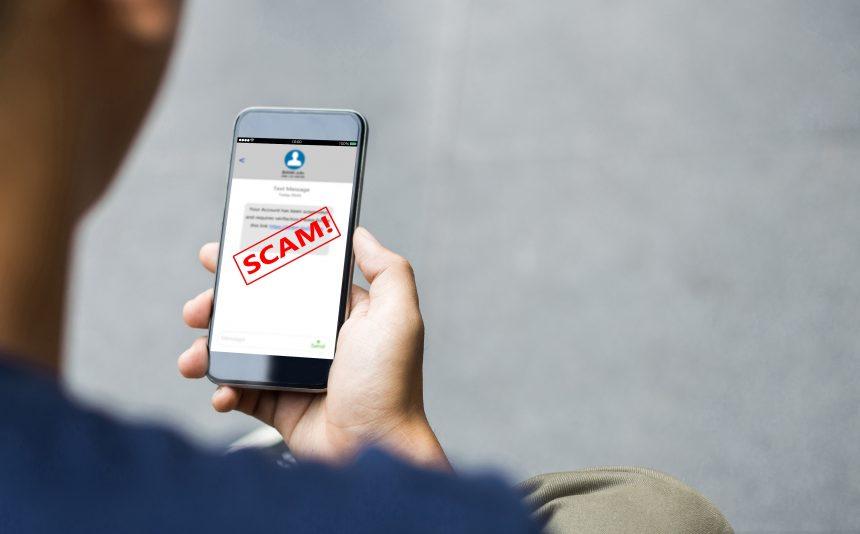The “NEOM Giga Projects” email scam is a phishing campaign designed to deceive users into sharing sensitive personal or financial information. Presented as an invitation to global vendors to participate in Saudi Arabia’s NEOM urban megaproject, this scam exploits the ambitious real-world NEOM project for malicious purposes.
Disguised as an opportunity to offer services or expertise, the email targets businesses and individuals across various industries such as construction, manufacturing, energy, healthcare, entertainment, and more. However, the claims in this email are entirely fake and not associated with the official NEOM project or any public figures involved.
Remove annoying malware threats like this one in seconds!
Scan Your Computer for Free with Spyhunter
Download Spyhunter now, and scan your computer for this and other cybersecurity threats for free now!
What is the “NEOM Giga Projects” Scam?
The “NEOM Giga Projects” email scam appears with subject lines such as:
- “Invitation: Invitation to Shape NEOM’s Urban and Sustainability Vision”
- Variations may exist depending on the targeted individual or organization.
The email content briefly introduces NEOM, a real megaproject planned in the Tabuk Province of Saudi Arabia. It describes NEOM as a futuristic urban area with components such as a green energy city, industrial zones, trade hubs, and luxury resorts.
The email claims that vendors, suppliers, and experts are being invited to request an Invitation To Tender (ITT), Expression of Interest (EOI), or complete a Vendor Registration Questionnaire (VRQ) to register their interest in participating in NEOM’s development.
Why is the “NEOM Giga Projects” Email Dangerous?
The scammers behind this campaign use social engineering tactics to manipulate recipients into providing confidential information or funds. The fraudulent email can result in the following consequences:
- Theft of Sensitive Information: Documents submitted during fake ITTs/EOIs can contain sensitive company or personal data. Scammers may misuse this information for fraudulent purposes.
- Phishing: Recipients may be redirected to phishing websites imitating legitimate service pages, where their log-in credentials are stolen.
- Malware Infections: By encouraging users to download files or click on malicious links, attackers can deploy malware such as trojans, spyware, or ransomware to compromise systems and networks.
- Financial Loss: Victims may be tricked into paying fake fees, taxes, or registration costs, resulting in direct financial loss.
- Identity Theft: Scammers may use personal identification details (e.g., passport scans, IDs, etc.) for identity theft or fraud.
Symptoms of the “NEOM Giga Projects” Scam
- Receiving unsolicited emails requesting vendor registration.
- Being asked to submit personal, financial, or company data via unverified forms or links.
- Unauthorized account access or password changes.
- Unexpected online purchases or monetary transactions.
How to Remove the “NEOM Giga Projects” Scam Email
Remove annoying malware threats like this one in seconds!
Scan Your Computer for Free with Spyhunter
Download Spyhunter now, and scan your computer for this and other cybersecurity threats for free now!
If you have received the “NEOM Giga Projects” email, do not engage with its content. Follow this guide to remove it and secure your accounts and devices.
Step 1: Delete the Scam Email
- Open your email client.
- Locate the suspicious email.
- Do not click any links or download any attachments.
- Move the email to the spam/junk folder or delete it permanently.
Step 2: Scan Your System for Malware
Scammers may include malicious attachments or links to infect your system with malware. Run a comprehensive system scan to detect and remove any potential threats.
- Install a reputable anti-malware tool like SpyHunter or similar software.
- Perform a full system scan.
- Follow the software’s prompts to remove any detected malware.
Step 3: Change Passwords for All Accounts
If you have submitted log-in credentials or suspect that your accounts have been compromised:
- Change your passwords immediately.
- Enable two-factor authentication (2FA) for an added layer of security.
- Contact the official support teams for potentially affected accounts.
Step 4: Report the Scam
To prevent others from falling victim to this scam:
- Report the email to your email provider.
- Notify your organization’s IT department.
- Report the incident to relevant authorities or cybercrime agencies.
How to Avoid Falling Victim to Similar Scams
Implementing preventive measures is crucial to safeguarding your information and systems from future threats like the “NEOM Giga Projects” email scam.
Verify Unsolicited Emails
- Double-check the sender’s email address. Legitimate organizations use official domain names (e.g., @neom.com).
- Look for spelling errors, grammatical mistakes, or unprofessional formatting.
- Cross-check the content by visiting the official website of the organization.
Avoid Clicking Suspicious Links or Attachments
- Hover over links to inspect the URL before clicking.
- Avoid downloading files from unknown or untrusted sources.
Use Anti-Phishing and Anti-Malware Tools
- Install reliable anti-malware software such as SpyHunter.
- Enable email filters that detect and block spam or phishing emails.
Secure Your Devices and Accounts
- Use strong, unique passwords for each account.
- Enable two-factor authentication (2FA).
- Keep your operating system and software updated.
Educate Your Team or Family
If you work in an organization or manage a team:
- Educate employees about phishing and social engineering threats.
- Conduct regular cybersecurity training and simulations.
Monitor for Unauthorized Activity
- Check your bank statements and online accounts regularly.
- Enable notifications for account log-ins and financial transactions.
Final Thoughts
The “NEOM Giga Projects” email scam is a deceptive phishing campaign that preys on individuals and businesses by exploiting the reputation of a real megaproject. Trusting such fraudulent emails can lead to severe consequences, including financial loss, identity theft, and malware infections.
By following the comprehensive removal guide and implementing the preventive measures outlined in this article, you can protect yourself and your organization from similar scams.
If you suspect that you have already fallen victim, act swiftly by contacting relevant authorities, securing your accounts, and scanning your system for malware.





